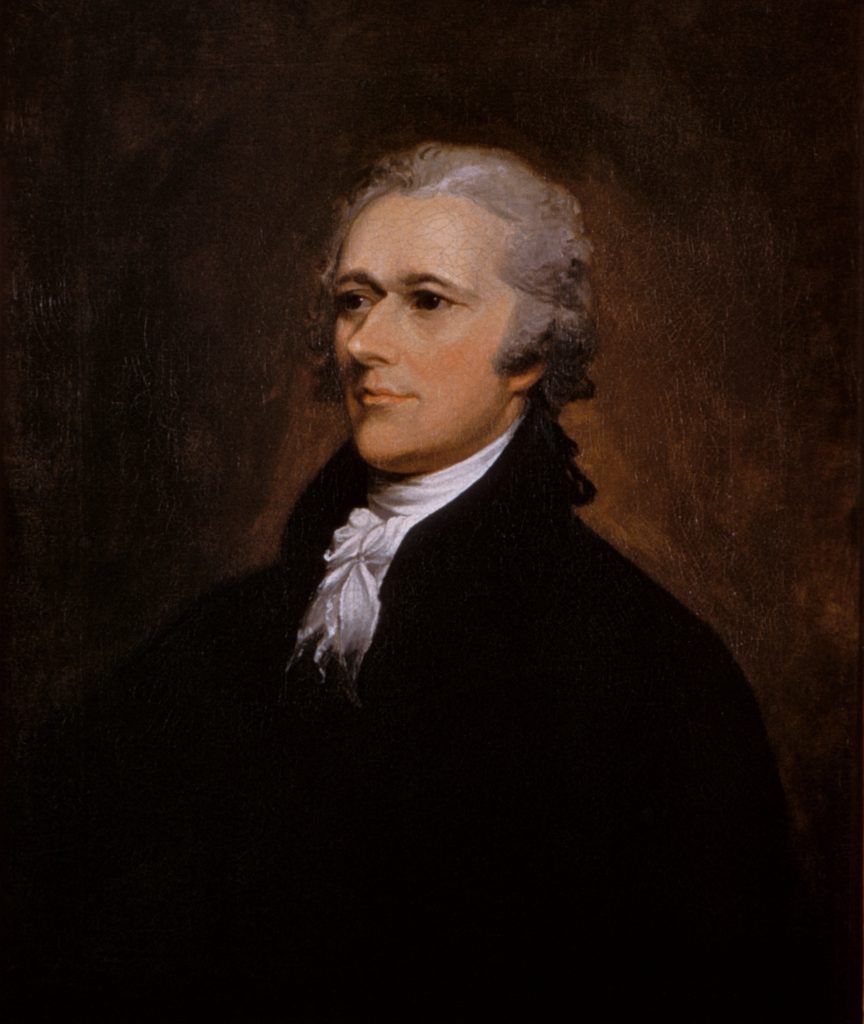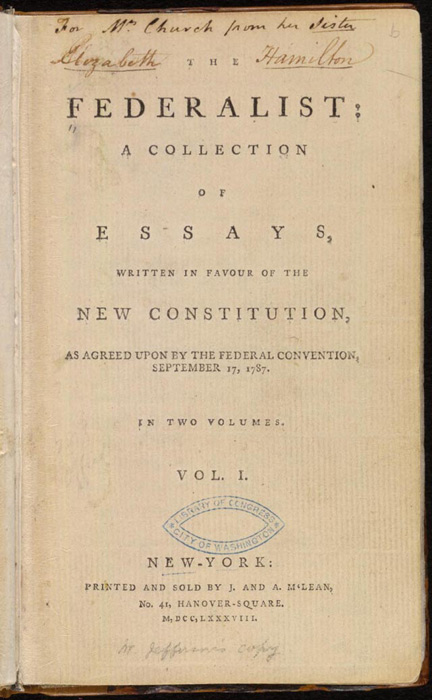Alexander Hamilton is best known for his contributions to the Federalist Papers, but that’s not all he wrote. Hamilton had many works published, such as a pamphlet confessing to his affair with Maria Reynolds, and others defending the U.S. Constitution. Because he wrote and published so many different works, we will be focusing on the ones written during the revolutionary war and his most popular works after.
A Full Vindication of the Measures of Congress
A Full Vindication of the Measures of Congress is one of Hamilton’s first published works. It was published in December of 1774, Hamilton only seventeen years old and attending King’s College. This pamphlet he wrote to defend the First Continental Congress against A. W. Farmer. A. W. Farmer was the pseudonym for Samuel Seabury. This pamphlet was over thirty-five pages. Samuel Seabury soon published another pamphlet against this one.
The Farmer Refuted
The Farmer Refuted, published in February of 1775, was a follow up to Hamilton’s first work. In this pamphlet, Hamilton once again argue against Seabury’s claims and works. As the title suggests, he refuted Seabury, a farmer.
Remarks on the Quebec Bill
Part one was published on June 15, 1775. As the first paragraph of The Remarks on the Quebec Bill states, Hamilton is remarking on the Quebec Act. The act was passed by British Parliament in 1774 to give Canadians religious freedom and more. Part two of Remarks on the Quebec Bill was published shortly after part one on June 22, 1775. Here, Hamilton, as stated in the first paragraph, examines the relations to religion of the act.
Publius
Alexander Hamilton used the name Publius while working for George Washington in 1777 and 1778. He signed letters using this name he found while reading Lives of the Noble Greeks and Romans. There were claims that Samuel Chase, a Continental Congress member from Maryland, conspired with confederates. There were three letters published under the name Publius. The first was dated October 19, 1778, the second was only a few days later on October 26, 1778, and the third and final letter was written on November 16, 1778.
The Continentalist
In February of 1781, Hamilton resigned from Washington’s staff. He wrote a letter to Robert Morris while he wasn’t working or fighting in the war. Robert Morris had been recently appointed congressional superintendent of finance. Hamilton wrote to give him tips. But as time went on, Hamilton found that congress was completely worthless as it depended on the states. So, he wrote essays and had them published in the New York Packet. There were three essays published between July and August of 1781.
The Federalist Papers
The Federalist Papers are what Hamilton is best known for writing. Along with James Madison and John Jay, eighty-five essays were written under the name Publius. Hamilton wrote fifty-one, Madison wrote twenty-six, and jay wrote only five. Three essays were written by both Madison and Hamilton. The Federalist Papers were essays defending the U.S. Constitution and influencing others to vote for it. Seventy-seven of the essays were published between October 1787 and August 1788 in The New York Packet. The eight other essays were published along with the others in The Federalist.
The Reynolds Pamphlet
The Reynolds Pamphlet was a ninety-five page pamphlet written in 1797. Hamilton had been having an affair with Maria Reynolds between 1791 and 1792 before the pamphlet was published. Her husband, James Reynolds, blackmailed hamilton for money as the affair continued. Hamilton published the pamphlet when word of the affair began to submerge. His reputation was only ruined because of the affair, though some did admire him for being truthful.
Other works by Hamilton include:
The Government and the Constitution
Letters of H.G
Taxation and Finance
Foreign Relations
Coinage and The Mint
The Adams Controversy
The Jefferson Controversy
Military Papers
The Whisky Rebellion
Commercial Relations
Foreign Policy
and more



